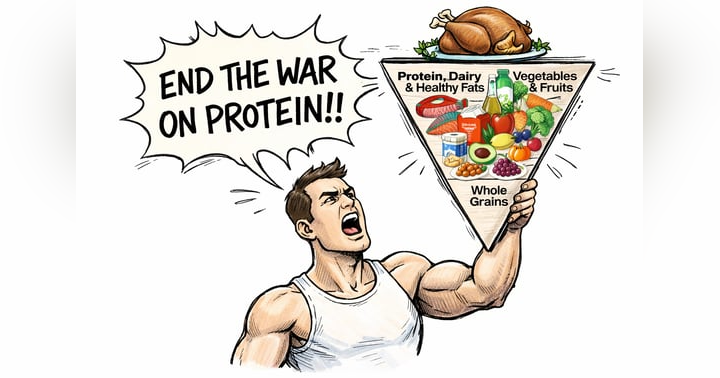Can Nutrition Help Manage PMS?
Cramps. Cravings. Fatigue.
For many, premenstrual syndrome (PMS) brings physical and emotional symptoms that disrupt daily life. The most common signs tend to appear toward the end of the luteal phase, in the days leading up to menstruation.
The average woman has a menstrual cycle every month for nearly 40 years. With over 90% of women experiencing symptoms like bloating, headaches, and mood swings, it’s no surprise that many are looking for ways to feel better.
The good news?
There’s growing evidence that supports the use of nutrition and lifestyle strategies for PMS.
Let’s take a closer look at the practical approaches that can help manage PMS symptoms while benefiting overall health.
5 Strategies to Ease PMS:
1. Prioritize Anti-Inflammatory, Nutrient-Dense Foods
A diet high in processed foods and added sugars is linked to worse PMS symptoms. In contrast, whole foods rich in fiber, antioxidants, and healthy fats can help regulate inflammation and support hormone balance.
Apply in Clinic: Encourage meals centered around vegetables, legumes, whole grains, and healthy fats. Recommend omega-3-rich foods like salmon, flaxseed, and walnuts several times per week.
2. Be Mindful of Caffeine and Alcohol
Both caffeine and alcohol can disrupt sleep, mood, and hydration, potentially intensifying PMS symptoms like fatigue, anxiety, and irritability. Reducing intake can support more stable mood and energy throughout the cycle.
Apply in Clinic: Encourage small swaps, such as herbal tea or decaf instead of regular coffee, or trying a low-sugar mocktail instead of cocktails. Highlight how these shifts can support energy, sleep, and overall mood regulation.
3. Meal Plan to Manage Cravings
Cravings, especially for sweets and salty snacks, are common in the luteal phase. These can worsen when meals are skipped or blood sugar dips too low. Instead of restricting, help patients build a balanced eating pattern. Prioritize snacks with fiber, protein, and healthy fats to increase satiety and reduce the likelihood of impulsive eating.
Apply in Clinic: Suggest planning ahead and having healthy snack options readily available, including foods like fruit with nut butter, dark chocolate with trail mix, or hummus with whole grain crackers and veggies.
4. Focus on Meal Timing and Consistency
Blood sugar fluctuations may contribute to PMS symptoms. Eating smaller, more frequent meals or balanced snacks can help regulate energy and mood. Studies have also shown that eating breakfast regularly may reduce PMS symptom severity, particularly fatigue and mood-related concerns.
Apply in Clinic: Recommend three balanced meals and 1–3 snacks spaced through the day.
5. Move Daily, Sleep Well, and Manage Stress
Exercise, rest, and emotional regulation play a major role in symptom relief. Movement supports circulation and mood. Restorative practices like yoga, breathwork, or journaling help ease stress, and getting enough sleep is essential for hormone balance.
Apply in Clinic: Suggest 30 minutes of movement on most days, 7–9 hours of sleep nightly, and small daily practices that reduce stress. To promote better rest, guide patients in creating a consistent nighttime routine, such as limiting screen time and setting up a calming environment before bed.
Final Thoughts
PMS is common, but there are practical strategies that can make a meaningful difference. These nutrition and lifestyle tools can help patients feel more balanced, supported, and in control of their menstrual cycle.
Curious about emerging topics in women’s health?
Cycle syncing has been gaining attention on social media—get the full context in Episode 92: Cycle Syncing: A New Way to Connect With Your Body
This article was written by Gabriella Reingevurts, dietetics student at Florida International University. Reviewed by Colleen Sloan, PA-C, RDN
References
- Office on Women’s Health. Your menstrual cycle. OASH website. Published 2015. Accessed April 15, 2025. https://womenshealth.gov/menstrual-cycle/your-menstrual-cycle#references
- Ciołek A, Kostecka M, Kostecka J, Kawecka P, Popik-Samborska M. An Assessment of Women’s Knowledge of the Menstrual Cycle and the Influence of Diet and Adherence to Dietary Patterns on the Alleviation or Exacerbation of Menstrual Distress. Nutrients. 2023;16(1):69-69. doi: https://doi.org/10.3390/nu16010069
- Gorczyca AM, Sjaarda LA, Mitchell EM, et al. Changes in macronutrient, micronutrient, and food group intakes throughout the menstrual cycle in healthy, premenopausal women. European Journal of Nutrition. 2015;55(3):1181-1188.
- doi: https://doi.org/10.1007/s00394-015-0931-0
- Premenstrual Syndrome (PMS). acog.org. Accessed April 15, 2025. https://www.acog.org/womens-health/faqs/premenstrual-syndrome






